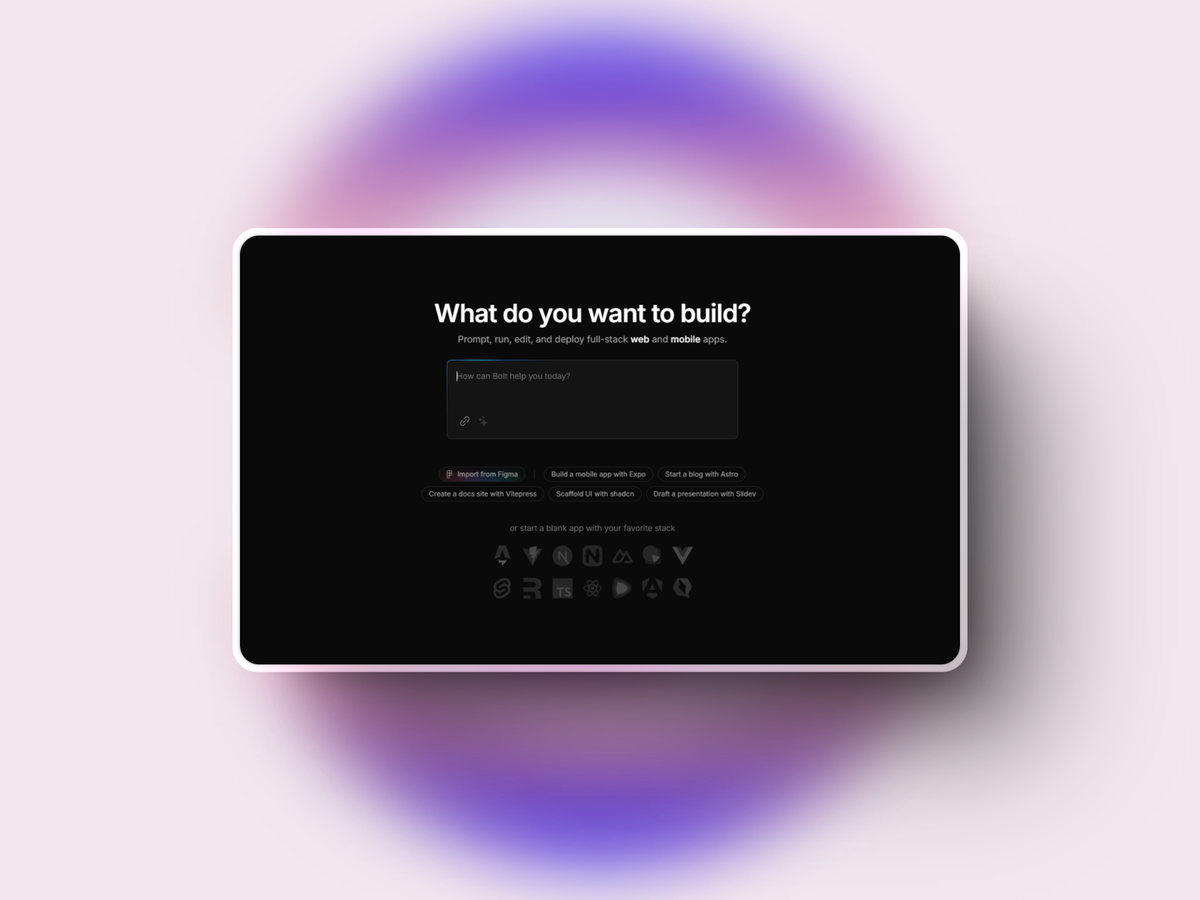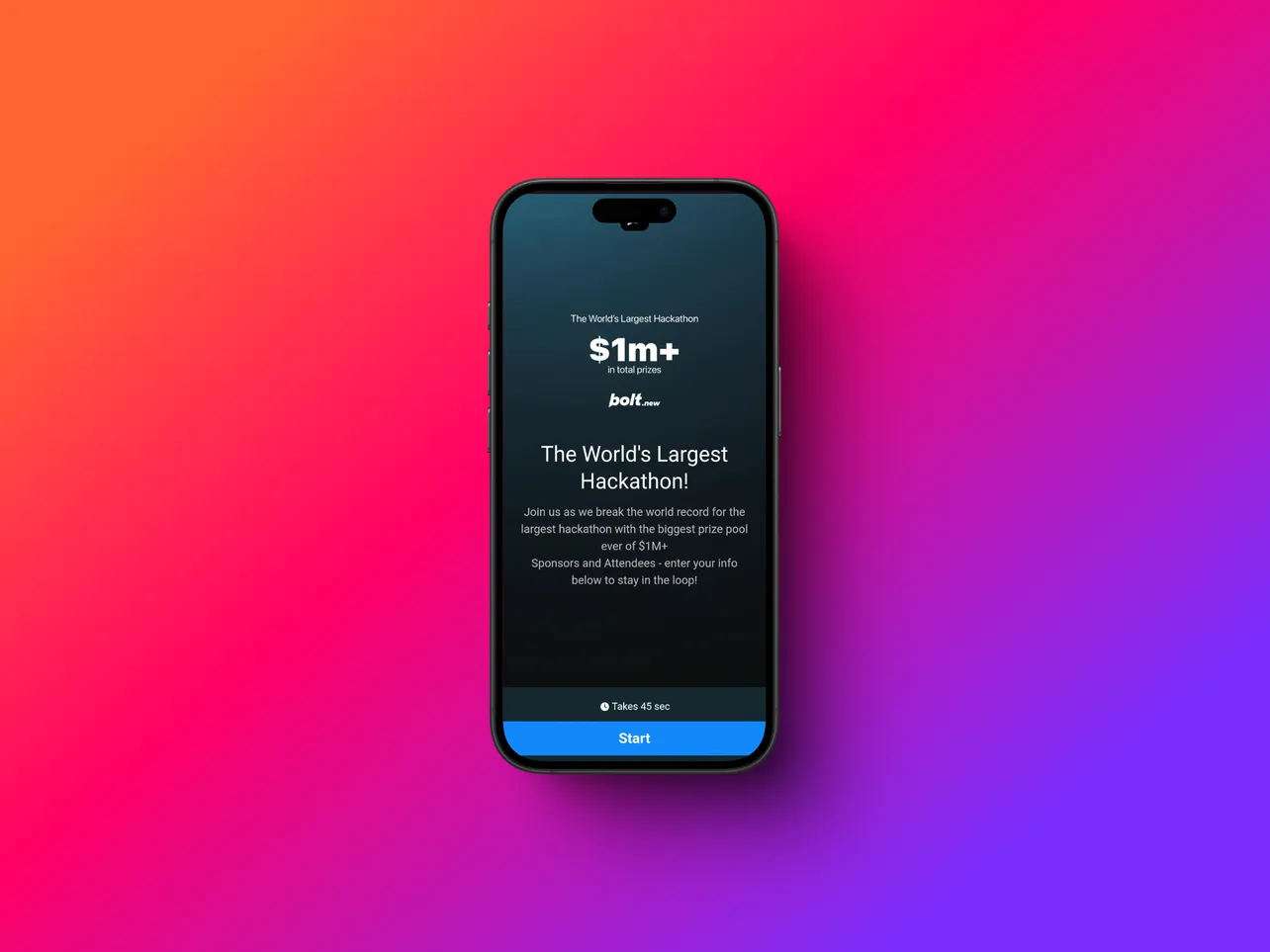That's the kind of energy the startup space needs. Whether you're in it for the cash, the connections, or just the thrill of building something new, this could be worth a shot.
The hackathon landscape has been evolving rapidly, with events becoming more sophisticated and prize pools growing substantially. But a million-dollar hackathon? That's entering new territory entirely.
Big Prizes Mean Big Talent
A million-dollar prize pool attracts serious competitors. This isn't your local weekend hackathon with a free T-shirt—expect a stacked lineup of builders, coders, and problem-solvers. When the stakes are this high, you'll likely see:
- Experienced developers taking time off work
- Startup founders using this as a validation opportunity
- Students and recent grads treating this as a potential career launchpad
- International participants willing to travel for the chance
World Record Potential
If they pull this off, it'll be the biggest hackathon ever. Being part of a record-setting event has its own appeal, especially if it brings media coverage and investor interest. The publicity alone could be worth participating, even if you don't place in the top spots.
A Chance to Stand Out
If you're an early-stage founder, hackathons are an underrated way to get noticed.
Winning, or even just making it to the finals, can open doors. The connections you make during intense building sessions often prove more valuable than the prize money itself.
Testing Ground for Ideas
High-stakes hackathons like this serve as excellent validation environments.
If your idea can compete at this level, it's probably got legs in the real market. The feedback from judges and fellow participants can be incredibly valuable for refining your concept.
Market Timing
This hackathon is happening at an interesting inflection point in tech.
With AI tools making development faster and more accessible, the barrier to entry for creating impressive demos has never been lower. At the same time, the competition for attention (and funding) has never been fiercer.
Ecosystem Building
Events like this don't just reward winners—they create communities.
The relationships formed during a high-intensity hackathon often lead to future collaborations, co-founder matches, and hiring opportunities. The network effect could be the real prize here.
A Few Things to Watch
Who's Funding the Prizes?
A million-dollar prize pool doesn't appear out of nowhere. Is it sponsorship-backed? Venture-funded? The details aren't clear yet, but understanding the funding source can tell you a lot about the event's legitimacy and long-term viability.
What's the Prize Structure?
Cash? Equity? Credits? Knowing what's actually on the table matters before you commit. Some hackathons offer attractive headline numbers but distribute them across dozens of categories, making the actual expected value much lower.
Judging Criteria and Process
With this much money at stake, the judging process becomes crucial. Who are the judges? What are they looking for? Understanding the evaluation criteria can help you tailor your approach and avoid wasting time on impressive but irrelevant features.
Intellectual Property Considerations
Always read the fine print on IP ownership. Some hackathons retain rights to submissions, while others let participants keep full ownership. With prizes this large, these details matter more than usual.
What's Bolt.new?
Bolt is a new player in the hackathon space, making a bold entrance with a $1M+ prize pool. They're looking to attract top talent and establish themselves quickly. No red flags so far, but it's always good to verify details.
The company appears to be positioning itself as a major force in developer tools and platforms. Their willingness to invest heavily in community building suggests they're playing a long-term game rather than just seeking quick publicity.

Preparation Strategy
Team Formation
Start thinking about your team composition now. The best hackathon teams usually include:
- A strong technical lead who can architect quickly
- A designer who can make things look polished
- Someone with business acumen for pitching
- Ideally, someone with domain expertise in your chosen area
Idea Validation
Don't wait until the event to start thinking about what to build. The most successful hackathon participants often come in with a rough idea and use the event to execute and refine rather than brainstorm from scratch.
Technical Stack Decisions
Choose technologies you're already comfortable with. Hackathons aren't the time to learn new frameworks—they're the time to leverage what you already know to build something impressive quickly.
The Bigger Picture
Industry Implications
Million-dollar hackathons could become the new standard for attracting top talent. If this event is successful, expect other organizations to follow suit, potentially inflating the entire hackathon prize ecosystem.
Talent Acquisition
For sponsors and judges, this is essentially a high-stakes talent scouting event. The winning teams will likely receive job offers, investment interest, and partnership opportunities that extend far beyond the official prizes.
Should You Sign Up?
If you love building and competition, this looks like a solid opportunity. Even if you don't win, networking at an event like this could be valuable. Consider it if you:
- Have a solid technical background and team
- Can afford to take the time off (these events are intensive)
- Have an idea that could realistically be prototyped in the given timeframe
- Are comfortable with high-pressure, competitive environments
The downside risk is relatively low—mainly your time and energy. The upside potential, however, could be career-changing.
We're curious to see how it plays out, and we can't wait to see what everyone builds.
The hackathon space is evolving, and events like this are pushing the boundaries of what's possible. Whether this becomes a new standard or remains a one-off experiment, it's definitely worth watching.
Frequently Asked Questions About Bolt.new
What is Bolt.new?
Bolt.new is an AI-powered platform that generates and deploys full-stack web applications using modern frameworks, allowing users to create stunning apps and websites by chatting with AI. The platform gives AI models complete control over the entire development environment including the filesystem, node server, package manager, terminal, and browser console.
What does Bolt.new do?
Bolt.new empowers AI agents to handle the entire app lifecycle—from creation to deployment, allowing experienced developers, PMs, and designers to build production-grade full-stack applications with ease. It's essentially a conversational interface for web development where you describe what you want to build, and the AI creates it for you.
How does Bolt.new work?
The platform uses AI models to interpret your natural language descriptions and convert them into working code. Unlike traditional AI coding assistants, Bolt.new gives AI models complete control over the entire environment, allowing it to not just write code but also manage dependencies, run servers, and handle deployment.
What AI does Bolt.new use?
Based on the search results, Bolt.new appears to use multiple AI models including Claude and GPT-4. The platform uses token-based pricing where each plan includes a monthly token allowance you can spend on AI completions from models like Claude and GPT-4.
What are the main features of Bolt.new?
Key features include:
- Full-stack web app generation from natural language prompts
- Real-time preview and editing capabilities
- Built-in deployment functionality
- Support for modern JavaScript frameworks
- Open-source codebase available for developers who want to build their own AI-powered development tools
- Browser-based development environment with no setup required
How much does Bolt.new cost?
Bolt.new offers free daily tokens to get you started with AI-powered features. Once you've used up your daily token limit, these features will be paused until your tokens reset the next day, or you can upgrade to a higher plan for continued access.
The platform now uses token-based pricing, with plans starting around $20/month, and enterprise plans available with custom pricing.
What are the limitations of using Bolt.new for complex projects?
For more complex projects or production-level work, bolt.new may not yet be robust enough to replace traditional development workflows.
While it's great for rapid prototyping and learning new frameworks, some users have noted that it can struggle with complex tasks or custom designs, and may have performance issues compared to local development environments.
Bolt creates problems for developers once their projects grow beyond basic prototypes, with some users reporting costs over $1,000 on tokens just to fix code problems, along with issues like blank screens, missing files, and partial deployments.
The platform appears to be best suited for:
- Rapid prototyping
- Learning new frameworks
- Building simple to medium-complexity applications
- Getting started quickly without environment setup
For enterprise-level applications or highly complex projects, traditional development approaches may still be more suitable.
What do you think? Is a million-dollar hackathon the future of developer competitions, or just an expensive publicity stunt? Let us know your thoughts.




